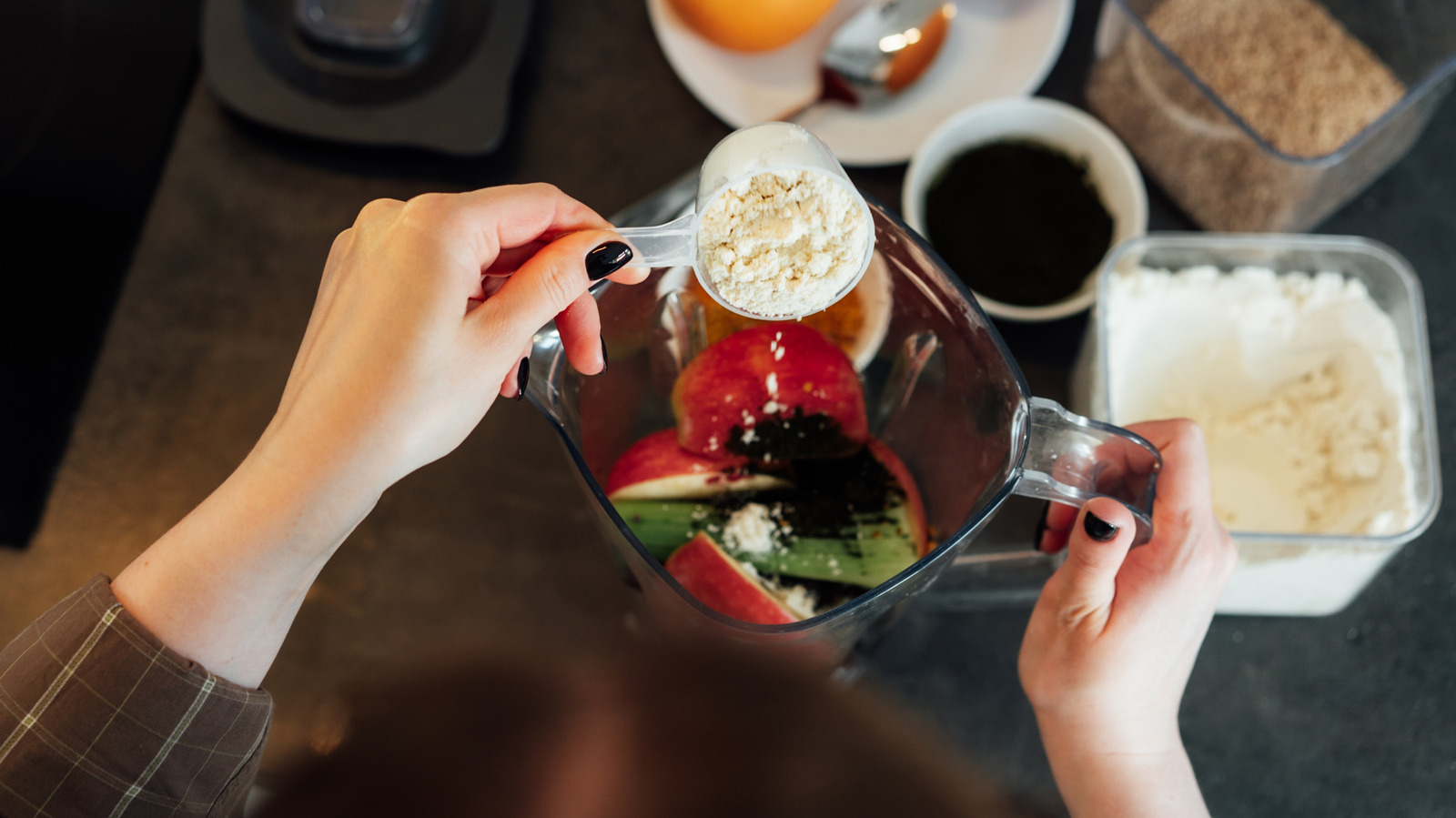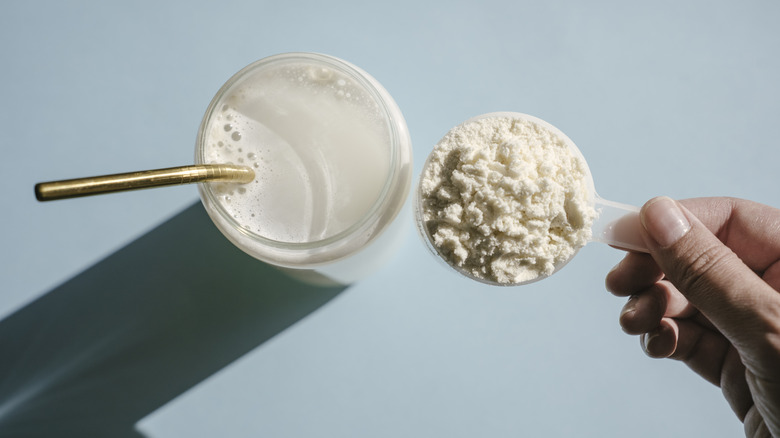We may receive a commission on purchases made from links.
We love seitan and tempeh as much as the next foodie, but as gourmands of all dietary guidelines know, variety is the spice of life. Folks looking for vegan protein sources often turn to protein powder to meet their individual nutritional needs. But, for plant-based eaters, whey protein powder is a supplement to dodge.
Don’t get us wrong, whey protein powder is a popular choice for a reason. It packs notoriously high protein content (around 13 grams of protein per 20-gram scoop, depending upon the brand) and it’s also a complete protein, meaning it comprises all nine essential amino acids. Still, whey protein is a byproduct of cheese production, meaning it comes from cow’s milk and is therefore not vegan.
To make cheese, cheesemongers add enzymes to milk, which separates the liquid whey from the solid curds. “Whey” is an umbrella term for the liquid-suspended proteins that naturally exist in cow’s milk (beta-lactoglobulin, alpha-lactalbumin, glycomacropeptide, immunoglobulins, bovine serum albumin, lactoferrin, lactoperoxidase, and lysozyme). That thin, liquid-y whey is packed full of protein (it’s the liquid layer that floats on top of your yogurt container), and it gets pasteurized and dried to make whey protein powder. Luckily, even though whey comes from an animal source, a wide array of other, plant-based protein powders are available on the market to help foodies following a strict vegan diet meet their protein goals.
Plant-based eaters should look for these protein powders
Vegans can find protein powder nutritional supplements made from pea protein, hemp protein, soy protein, brown rice protein, and more, all of which feature unique benefits. Pea protein is naturally amino-rich, and soy protein is a complete protein, packing all nine essential amino acids for human wellness and muscle formation. Some offerings, like Vega Sport protein powder, are made from a blend of different vegan protein sources. Vega brand uses pea, pumpkin seed, sunflower seed, and alfalfa, packing 30 grams of protein per 41-gram scoop — not sacrificing whey’s protein-punch. “Your body can only use 20 to 40 grams of protein at a time,” explains Registered dietitian Maxine Smith, RD, LD, of the Cleveland Clinic. “Most people don’t need whey protein to meet their protein requirements if they’re eating a healthy diet.”
Plant-based eaters can add non-whey protein powders to acai bowls, shakes, and plant-milk smoothies. We have a few tips for seamlessly adding protein powder into your smoothies to help you out. To make this vanilla chai protein smoothie vegan-friendly, simply swap the cottage cheese and Greek yogurt with non-dairy alternatives, and bust out a scoop of vanilla protein powder. This raw, organic, vegan offering by Garden of Life would get the job done perfectly. There are also plenty of other vegan, high-protein smoothie ingredients that aren’t protein powder, like nut butters and silken tofu. Soy milk is also naturally higher-protein than almond milk.






